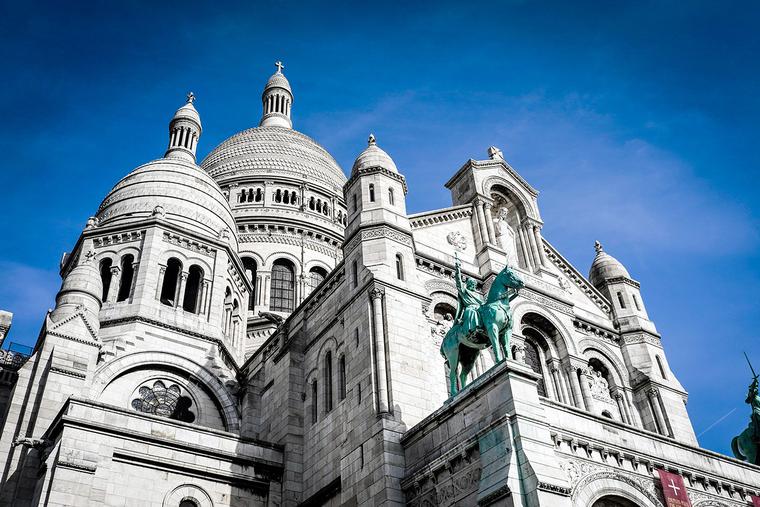The Church Exists Not for Your Pleasure, but for Your Sanctification
God inscribed your soul with an identity belonging only to him. Nothing less than union with him will ultimately satisfy.

A young man, incensed by a Church so resistant to change that it would not adapt itself to meet his needs, approached the future St. Teresa of Calcutta to ask where he should start to shake things up. What structures ought to be dismantled straightaway? Where is the starting point? She answered him quite simply: “You and I are the starting point!”
It is only the witness of sanctity, in other words, not new and improved structures, that can save anyone. Your parish priest is not a saint? What about your bishop — is he too a boob? Then why don’t you become a saint and surprise the hell out of both of them?
“Whoever pretends to reform the Church,” writes George Bernanos, “with the same means used to reform temporal society — not only will he fail in his undertaking, but he will infallibly end by finding himself outside the Church.”
If your aim is to make the politicians more responsive to your needs, the government they manage more efficient in bringing you the blessings of your liberty, then by all means vote the rascals out of office when they fail to deliver. But the Church is not City Hall, whose mayor and police chief can be fired for failing to satisfy its citizens. In fact, the Church does not exist for your pleasure at all. She exists for your sanctification. She is, as T.S. Eliot unforgettably puts in Four Quartets, “the dying nurse / Whose constant care is not to please / But to remind of our, and Adam’s curse, / And that, to be restored, our sickness must grow worse.”
Which has surely happened by now, leaving only the alternative of Jesus Christ, whom Eliot invokes in the following, final stanza:
The dripping blood our only drink,
The bloody flesh our only food:
In spite of which we like to think
That we are sound, substantial flesh and blood—
Again, in spite of that, we call this Friday good.
“It is quite possible,” adds Bernanos in his reflection, “that Saint Francis of Assisi was not any less thrown into revolt than Luther by the debauchery and simony of prelates. … But Francis did not challenge iniquity; he was not tempted to confront it; instead, he threw himself into poverty, immersing himself in it as deeply as possible along with his followers. He found in poverty the very source and wellspring of all absolution and all purity. Instead of attempting to snatch from the Church all her ill-gotten gains, he overwhelmed her with invisible treasures, and under the hand of this beggar the heaps of gold and lust began blossoming like an April hedge.”
This is all very stirring stuff, especially the note he ends with, which is one of exhortation: “what the Church needs is not critics but artists. … When poetry is in full crisis, the important thing is not to point the finger at bad poets but oneself to write beautiful poems, thus unstopping the sacred springs.”
What is the premise here on which all this depends, but the truth about man, which is that he is capable of God, capax Dei, determined by and for God. It is the great truth surrounding our creation, that each of us is made in God’s own image, the perfection of which awaits an infusion of grace sufficient to turn that image into the very likeness of Christ. God having inscribed our souls with an identity belonging only to him, nothing less than union with him will ultimately satisfy. The real needs of the human heart, the ones that are very deep down and will never go away, have to do with holiness and eternal life. They cannot be parlayed into cheap surrogates like sex, money or power. Or, dare one say it, complaining about lousy leadership. “Only the attraction of Being that shines in the face of Christ,” Father Julian Carron reminds us, “which is present here and now in the flesh of the Church, can defeat the allure of nothingness.” Only God can save us now.
It was about 20 years ago that a couple of hundred bishops converged on Rome for a series of meetings at which, among other hot button issues, the crisis of faith in the Church was discussed. No surprise there and, come to think of it, what other crisis have we got? It wasn’t global warming we were exercised about back then. Nor the threat of COVID-19, for heaven’s sake. Which, mercifully, wasn’t even a distant blip on the world’s horizon. And now that we’ve all been carefully coached by Dr. Fauci to follow the science, why would bishops need to weigh in on these matters anyway?
Haven’t they got bigger fish to fry? Like the salvation of souls? The then-Cardinal Ratzinger, who certainly had a hand in calling his brother bishops to order, understood precisely why it was necessary to bring them to Rome. The world is thirsting not for information or solutions about “our so-called Church problems,” he told them, “but about the fire that Jesus brought to earth. Only if we have become ourselves contemporaries of Christ and this fire is alight within us, will the Gospel we announce touch the hearts of our own contemporaries.”
St. Catherine of Siena may have expressed it differently, but it was the same chord they both sounded. That if you are “what you are meant to be, you will set the world on fire.”
- Keywords:
- church reform
- sanctity

















